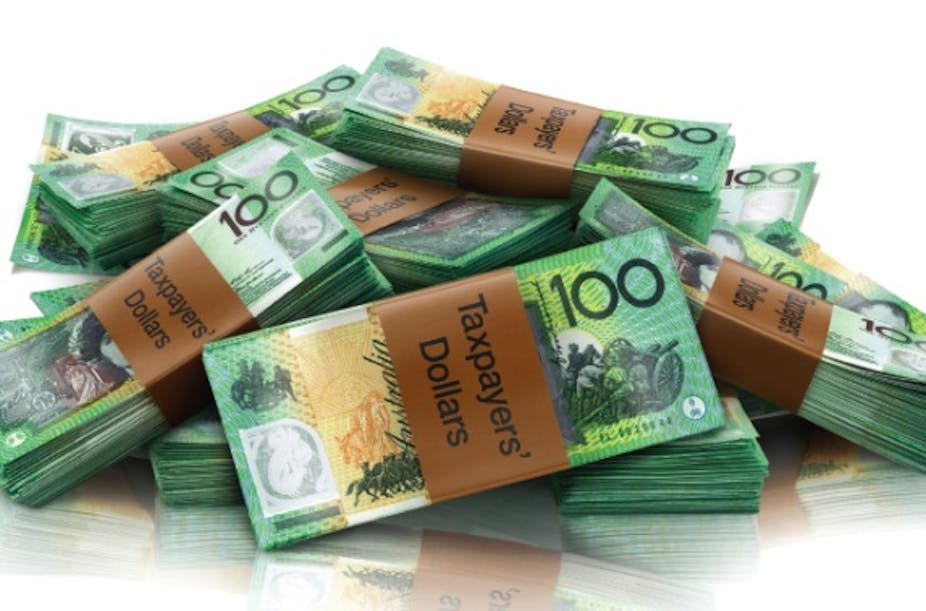The tobacco industry has launched a national media campaign today, questioning the Federal Government’s proposed plain packaging legislation.
It will also release a series of confidential government documents obtained under Freedom of Information laws, which it says show there is no proof that plain packaging will reduce smoking rates.
At the heart of today’s announcements are the claims that the introduction of plain packaging will lead to the government spending millions of dollars of taxpayer money and increase the illegal tobacco market. The industry says it will lower its prices in response, leading to a rise in smoking rates.
So do these industry claims stand up to scrutiny?
Associate Professor Colin McLeod, Executive Director of The Australian Centre for Retail Studies, Monash University
The tobacco industry’s claim that the government is willing to spend millions of taxpayers’ money on this unproven measure is based on their own claim that they’re willing to litigate to protect what they claim is their intellectual property.
So I’m assuming the money they claim the government will waste is all on legal costs, which will be incurred if the tobacco industry takes the government to court.
I’m not sure what their rationale is for reducing cigarette prices - it’s not clear to me why changing packaging should lead to reducing prices.
If I were to speculate, I’d say that it’s based on the idea that there’s some implied value in their package branding to the consumer. So, if that value isn’t there - in the absence of the logo, for instance - then they have to reduce their prices.
It seems to me the argument is about a type of intellectual property called package branding so they’re fighting to protect it.
It’s as though if their packaging is taken away, they’re no longer providing a benefit to the consumer, so the consumer won’t pay for it.
It’s a strange argument.
The fact that the industry is saying it will lower prices as well as fight a protracted legal battle over plain packaging shows that they’re willing to fight very hard to protect their position.
The tobacco industry has a long history of fighting legislative challenges. In the United States, it fought over other measures like health warnings on packages - it fought a long, hard battle over this.
Before that, it was over health claims - some companies used to claim that menthol cigarettes help you breathe more easily and they fought really hard before they stopped saying this.
The legal battle is a bigger issue in the United States, where tobacco was a big part of the economy of particular states, which in turn means that it was political issue. In some states in the US you couldn’t be elected unless you supported tobacco companies.
If they follow through on their indication that they will cut tobacco product prices, there might be an impact on their profits but I don’t buy price-cutting argument.
Tobacco hasn’t proved to be a particularly price-sensitive product.
They are claiming the price cuts they will be forced to make will make cigarettes more accesible to children but when you look at the cost of cigarettes - you would spend $50,000 over 10 years if you smoked one packet of cigarettes a day, and that’s post tax - this seems unlikely. This is clearly not a price-sensitive product.
There’s no doubt that they’ll fight the legal battle. Over the last few decades, the tobacco industry has fought many battles on many grounds so they can’t give any more ground without putting up a fight.
Globally, it’s a very profitable industry. Most tobacco companies are internationally-owned owned, so they don’t release information about their profits here but in the United Kingdom and the United States, where data is released, they are pretty profitable.
They’ve been doing this - fighting - for a long time and they’re very practised at it. The top six US tobacco companies spend US$4 billion in marketing only - that’s just on advertising, not packaging or any of those things.

Fiona Sharkie, Executive Director of Quit, Cancer Council of Victoria
Our view of the claim that there is a boom of illegal tobacco in the country, that there is a 150% growth, is that the figure is highly inflated and completely unsubstantiated.
When we’ve gone through the Deloitte’s report - Illicit trade of tobacco in Australia: a report prepared for British American Tobacco Australia Limited, Phillip Morris Limited and Imperial Tobacco Australia Limited - showing this growth in market and penetration, we’ve found the that data is questionable and selective.
The report’s figures and projections don’t include the legal market - only what they purport to be the illegal market.
If we were to believe what the report finds, it translates to 1 in 7 cigarettes smoked in Australian being sold out of the back of a truck in a laneway.
The other claim that the report makes is that 14-year-olds are smoking illegal tobacco or chop-chop. This is based on the Commonwealth Government’s National Drug Strategy Survey and it’s completely misquoting the survey.
We’ve written to the Australian Competition and Consumer Commission(ACCC) saying that it’s completely misleading.
Clearly, the industry wants to stop the legislation from going ahead. It’s fascinating that they are investing an awful lot of money - in the Deloitte’s report; in multi-million dollar campaigns; in establishing front groups. To us, this translates to showing they’re very worried because they know plain packaging is going to work.
We have to remember that the tobacco industry has mislead the public for many years and that the public knows that.
Do you buy Big Tobacco’s arguments against plain packaging?
Leave your comments below.

